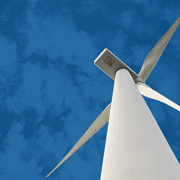- Forecasted progress of the UK’s decarbonization is impressive, with predicted reductions in greenhouse gas emissions by 58% by 2030, 68% by 2035 and 82% by 2050, against 1990 levels, but not reaching net zero
- By 2050, energy demand is expected to decrease by 25%, primarily because large-scale electrification will create a more efficient energy system compared to one based on fossil fuels
- Decarbonizing the UK economy is affordable and, by 2050, will reduce average household energy costs for consumers by nearly 40% compared to 2021 levels, mainly due to a more efficient energy system using electric vehicles and heat pumps
LONDON, UK, 6 February 2025: The UK’s energy transition will deliver a cleaner, more efficient, and less expensive energy system, according to DNV’s 2025 UK Energy Transition Outlook (ETO) report.
The independent energy expert and assurance provider assessed the UK’s trajectory against key government targets: Clean Power 2030, 2035 Nationally Determined Contribution (NDC) and the net zero by 2050 goal. While the UK will fall short—missing net zero by 18%—DNV’s analysis shows substantial progress in decarbonization. By 2050, emissions are projected to drop 82% from 1990 levels, amounting to remaining annual emissions of 145 million tons of CO₂ equivalent (MtCO₂e).
The short-term Clean Power 2030 target sets an ambition to decarbonize the electricity system by decade’s end, but DNV forecasts that unabated gas will still generate 12% of UK electricity in 2030. Full decarbonization is expected by 2035.
Renewables will see strong growth, with solar, onshore wind, and offshore wind capacity nearly doubling to 90 GW by 2030. However, this remains 45 GW short of government targets to double onshore wind, triple solar, and quadruple offshore wind.
Under the new NDC, the UK has committed to reducing economy-wide greenhouse gas emissions by 81% by 2035, compared to 1990 levels. DNV’s projections suggest it will reach only 68%, requiring steeper reductions to meet its pledge.
Hari Vamadevan, executive vice president and regional director, UK & Ireland, Energy Systems at DNV, said: “Despite economic and geopolitical challenges, the UK’s trajectory remains positive. A substantial green prize for our economy – cleaner and more affordable energy-, is there for the taking if we can grasp it. We must act swiftly to ensure we make decisive moves along the correct path.”

Decarbonization is cost-effective: by 2050, household energy costs for consumers will drop nearly 40% from 2021 levels. Energy demand will shrink by 25%, even as electricity consumption more than doubles, requiring 180 GW of new generation capacity. This decoupling of energy demand and GDP highlights continual energy-efficiency improvements across the economy.
Low carbon sources are expected to surpass fossil fuels in the supply mix, with the latter falling from 75% of primary energy today to 34% by 2050. However, oil and gas will remain dominant across the next decade, with significant amounts still required to balance energy demand and ensure security of supply.
To address lagging emissions reductions, the UK must accelerate large-scale electrification in heating and transport, alongside scaling carbon capture and storage (CCS) and hydrogen infrastructure.
Without stronger incentives, electric vehicle adoption will lag, with close to 60% of the passenger cars still running on fossil fuels by 2035.
Home heating presents another challenge: by 2050, more than half of homes will still use natural gas, with heat pump adoption limited by costs and insulation requirements. Without policy shifts to lower costs, gas will remain dominant for the foreseeable future.
Vamadevan added: “The scale of change can feel daunting, but change happens incrementally and progress is undeniable. To seize the potential economic, environmental and societal benefits ahead, we must turn urgency into actions—scaling renewables and updating grids at pace. Now more than ever, we need to move faster, forward, together.”
For media enquiries, please contact:
Neil Slater
Head of Media Relations
Energy Systems
DNV
Tel: +44 (0) 7876 578 353
E-mail: neil.slater@dnv.com
Penda Sall
Media Relations
Energy Systems
DNV
Tel: +33 (0) 651 69 88 64
E-mail: penda.sall@dnv.com
About DNV
DNV is the independent expert in risk management and assurance, operating in more than 100 countries. Through its broad experience and deep expertise DNV advances safety and sustainable performance, sets industry benchmarks, and inspires and invents solutions.
Whether assessing a new ship design, optimizing the performance of a wind farm, analyzing sensor data from a gas pipeline, or certifying a food company’s supply chain, DNV enables its customers and their stakeholders to make critical decisions with confidence.
Driven by its purpose, to safeguard life, property, and the environment, DNV helps tackle the challenges and global transformations facing its customers and the world today and is a trusted voice for many of the world’s most successful and forward-thinking companies.
In the energy industry
DNV provides assurance to the entire energy value chain through its advisory, monitoring, verification, and certification services. As the world’s leading resource of independent energy experts and technical advisors, the assurance provider helps industries and governments to navigate the many complex, interrelated transitions taking place globally and regionally, in the energy industry. DNV is committed to realizing the goals of the Paris Agreement, and supports customers to transition faster to a deeply decarbonized energy system.
Learn more at www.dnv.com






















